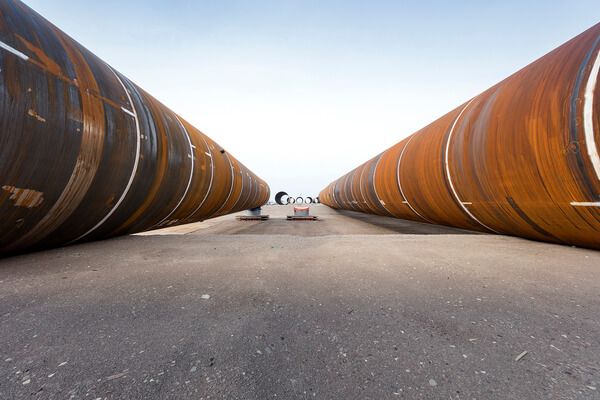News Release from windfair.net
Wind Industry Profile of
Dispute Over U.S Offshore Wind Farm Reaches Supply Chain
Actually, the wind industry knows its way around the somewhat unsteady medium of wind: Sometimes it blows, sometimes it doesn't. Likewise, the industry is subject to fluctuations that are often related to political decisions and cannot be influenced by companies.
Years ago, for example, the Spanish government changed the law with the consequences that hardly any wind farms were built in their own country. Business bankruptcies, job losses and the migration of companies abroad were the consequences from which the country, once a pioneer in the international energy transition, is only slowly recovering. A similar fate has befallen Germany at the moment where, following the introduction of the tendering system, a backlog of approvals has arisen which ensures that the wind turbines erected so far this year can almost still be counted by hand.
And now with the U.S., another country is currently making avoidable mistakes. There, the approval process for the Vineyard Wind Offshore Wind Farm, which was due to be built 23 kilometers off the coast of Massachusetts this year, is also coming to a halt. Last minute, so to speak. The reason: quarrels about an environmental report within various American authorities.
These disputes not only directly affect the project planners, but also the supply chain. Particularly in the case of offshore wind, where large components are used and the quantities are comparatively small, the delays quickly have an impact on the financial situation of the entire company.
Now Vineyard Wind's first supplier has taken the floor: Dutch company Sif was supposed to manufacture and install 84 monopiles for the wind farm off the coast of Massachusetts. This installation is subject to a strict timetable that includes seasonal restrictions on pile driving activities as a protective measure for the highly endangered North Atlantic Right Whales. The production of these monopiles was actually planned for the first half of 2020.

Sif must revise its production plan for 2020 (Image: Sif)
The request by the Bureau of Ocean Energy Management (BOEM) for an additional environmental impact study has now delayed the project beyond the timeframe originally assumed by Vineyard Wind. This will have an impact on Sif's 2020 production plan, but it is still unclear how large it will be and how it can be captured.
The agreement provides for mitigation options in the event of incidents of this kind. Whether and how high these options will be, however, depends largely on the decision of the authorities, which is expected in September. Do they give the go-ahead after the missing report has been drawn up, or are they going to take further weeks or months to reach a decision? Only then will it be clear whether financial consequences will arise beyond the contractual provisions and what mitigating measures Sif can take.
In any case, it is clear that the dispute between the authorities could draw further circles and ultimately endanger the entire project. This would not be the first time that an offshore wind farm in the USA has been caught up in the jungle of authorities.
- Author:
- Katrin Radtke
- Email:
- press@windfair.net
- Keywords:
- Sif, Vineyard Wind, offshore, wind farm, developer, authorities, USA, production plan, monopile, supply chain, supplier, wind industry, Germany, Spain


























